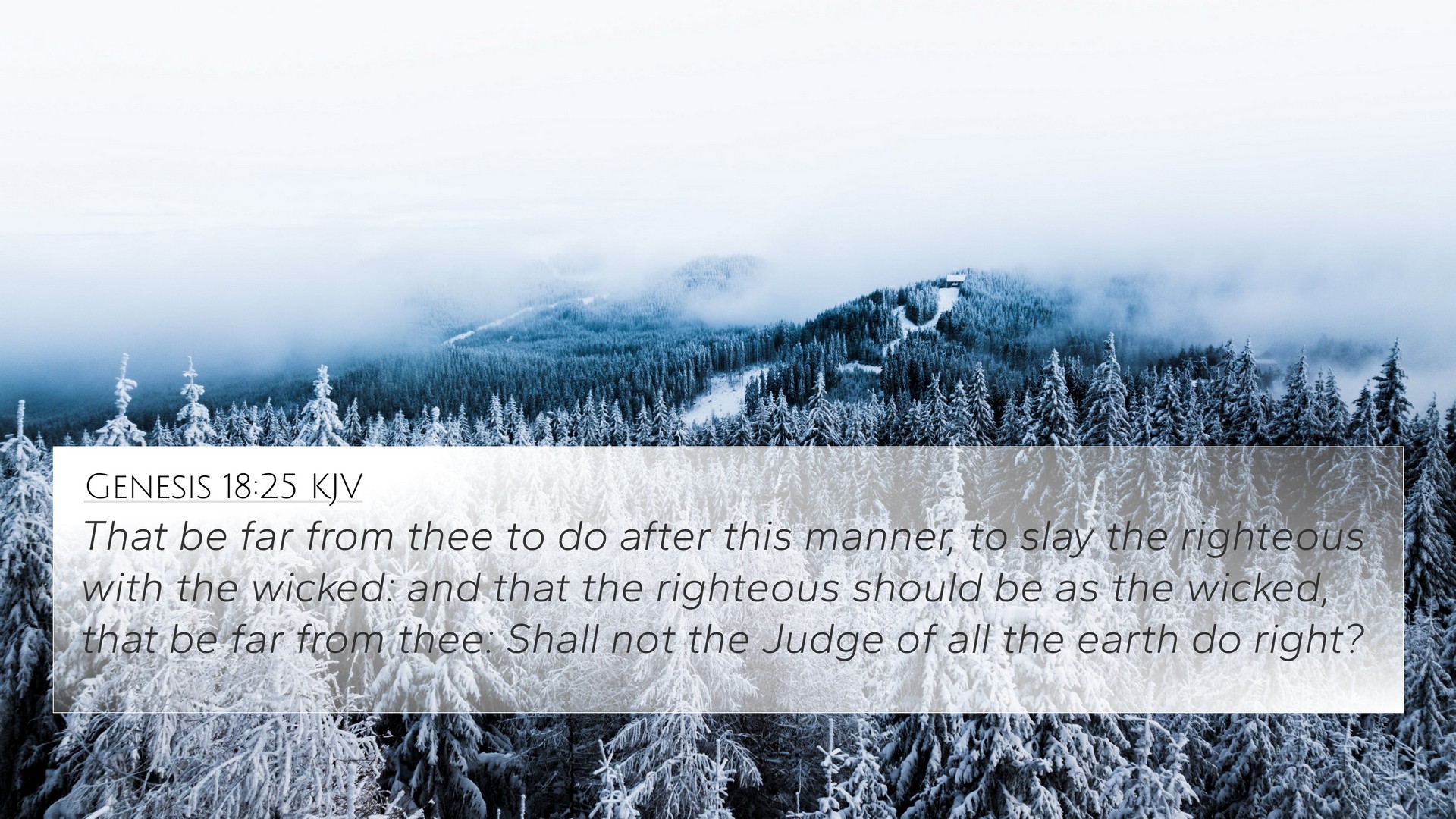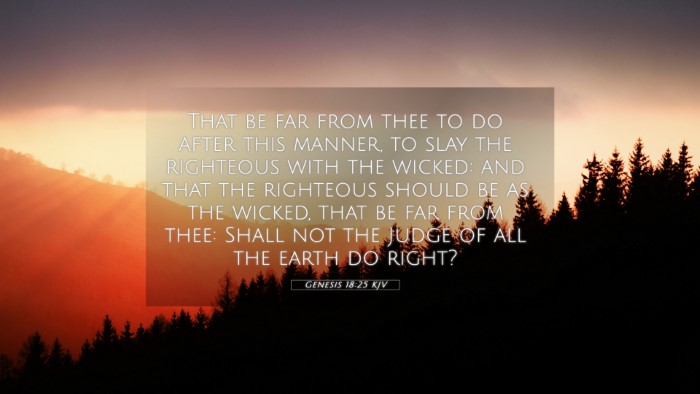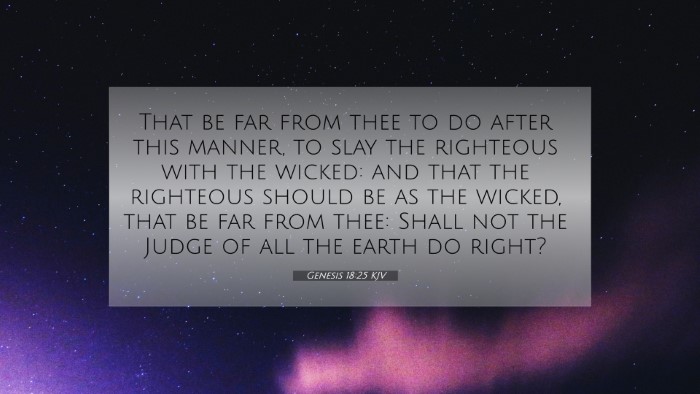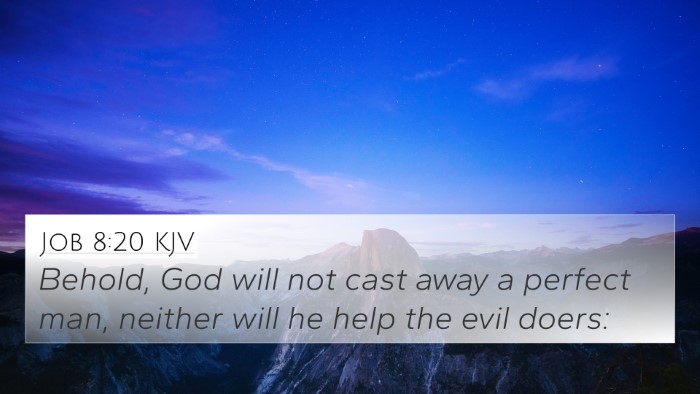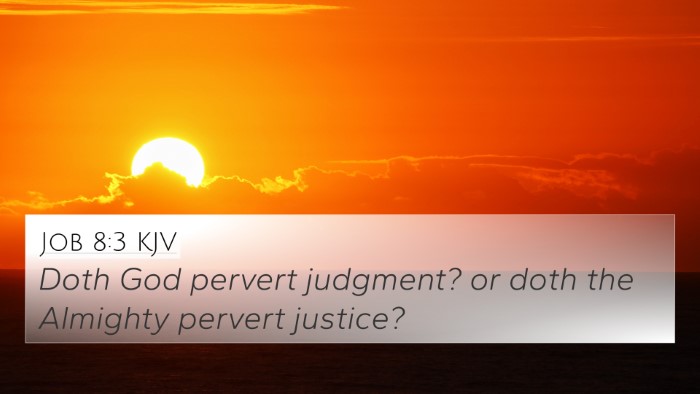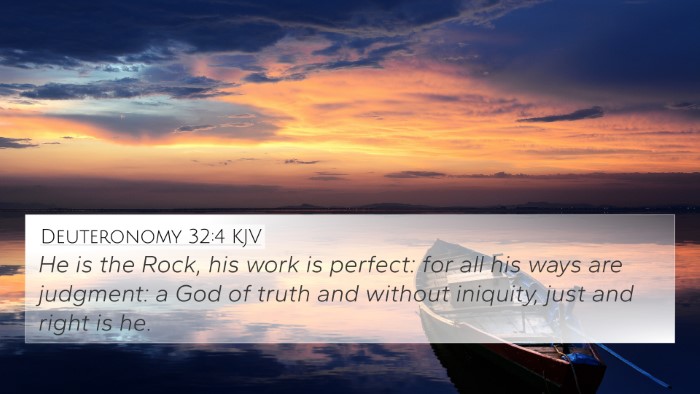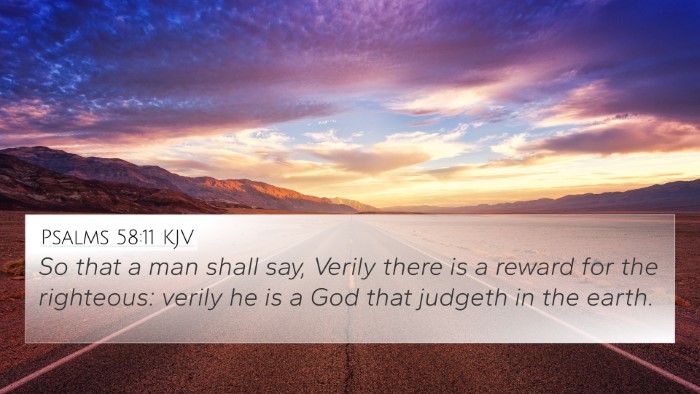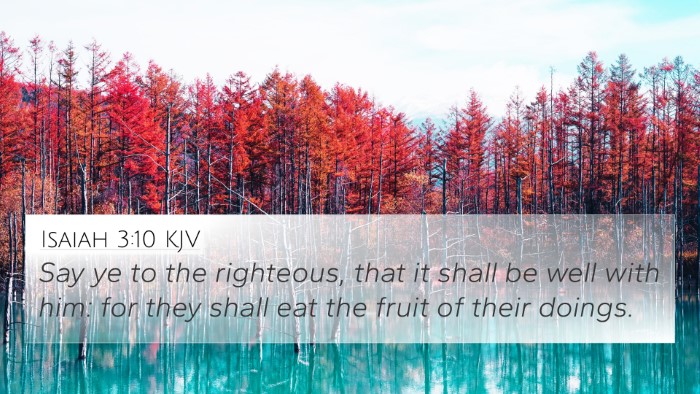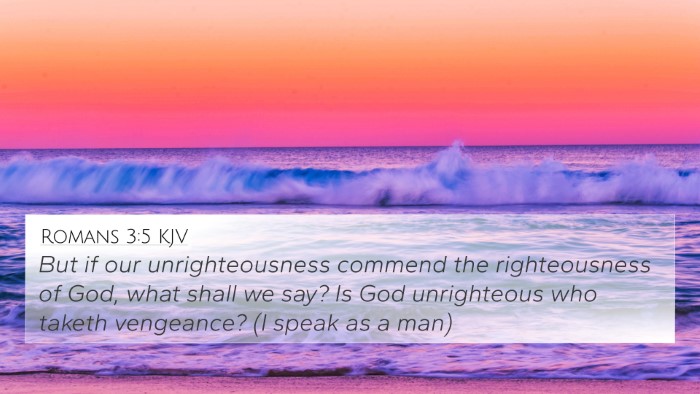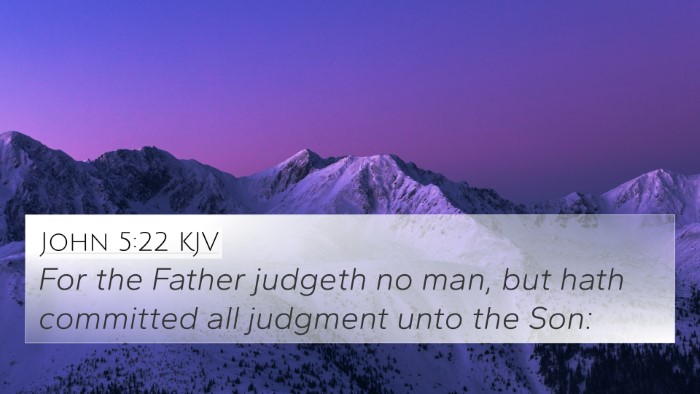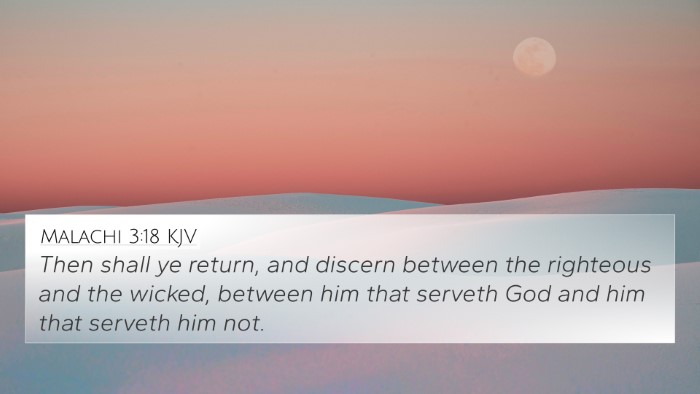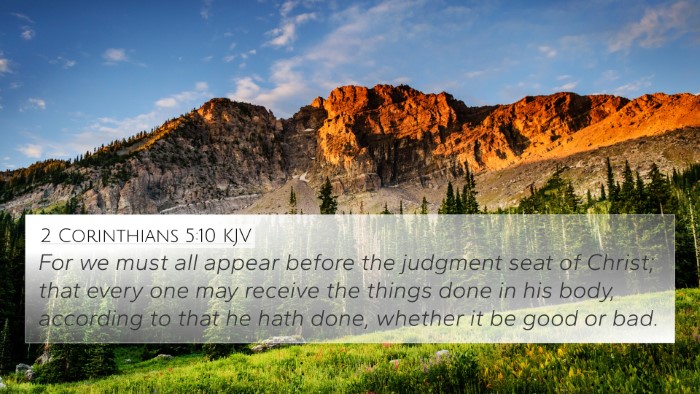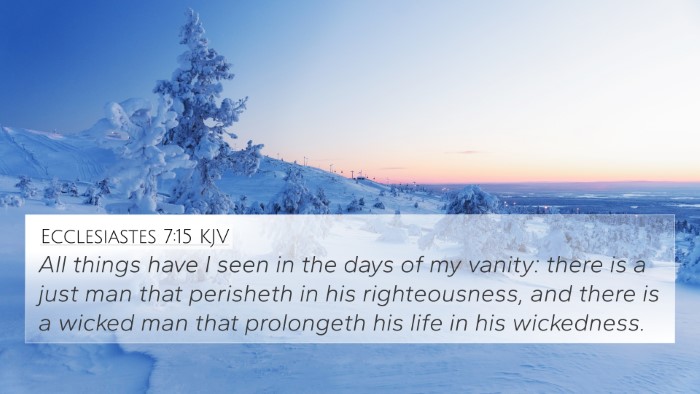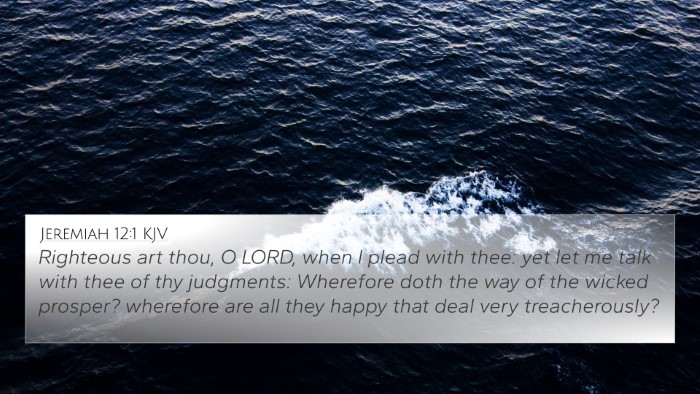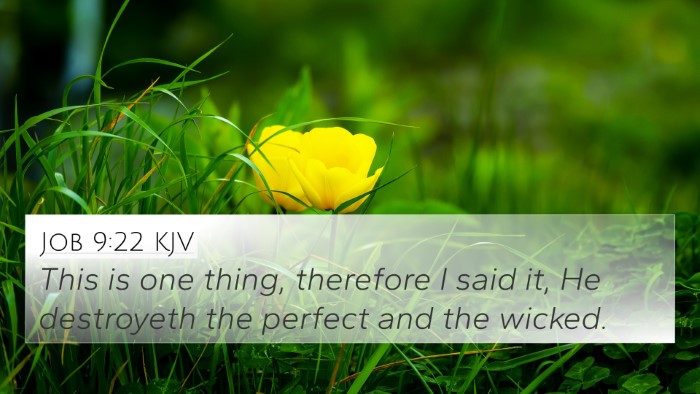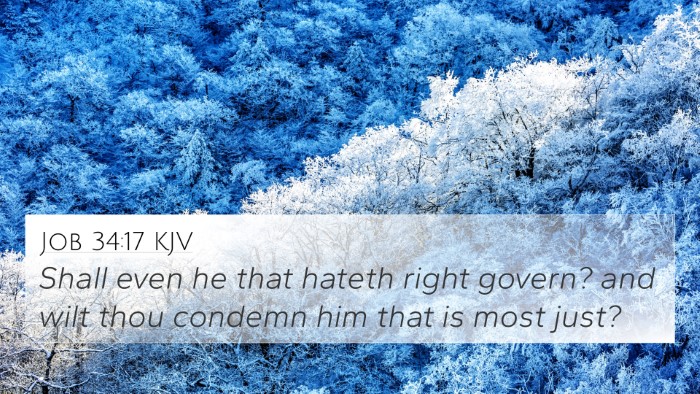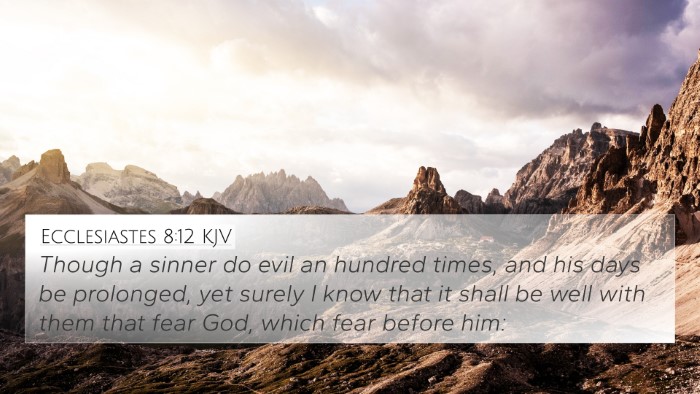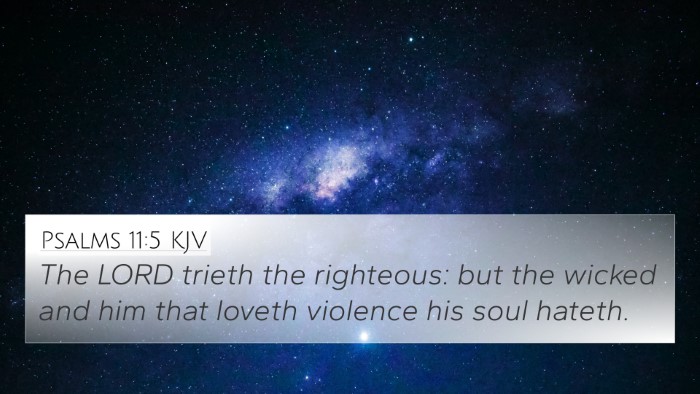Understanding Genesis 18:25
Genesis 18:25 presents a solemn inquiry poised by Abraham: “That be far from thee to do after this manner, to slay the righteous with the wicked: and that the righteous should be as the wicked, that be far from thee: shall not the Judge of all the earth do right?” This verse encapsulates profound theological insights regarding God's justice and moral integrity.
Verse Context
In this chapter, Abraham intercedes for the city of Sodom, anticipating the impending judgment because of its wickedness. This dialogue reveals not just Abraham's concern for the righteous residing in Sodom, but also highlights a fundamental characteristic of God's nature—His commitment to justice.
Commentary Insights
-
Matthew Henry: Henry emphasizes Abraham's boldness in petitioning God, illustrating that Abraham had confidence in God's fairness. The verse delineates the clear distinction between the righteous and the wicked, affirming that God’s judgment will be just and not arbitrary.
-
Albert Barnes: Barnes notes that Abraham’s appeal is rooted in the principle that God, as the sovereign Judge, cannot permit the innocent to suffer alongside the guilty. This request reflects the essence of divine justice where mercy and righteousness converge.
-
Adam Clarke: Clarke suggests that the moral dilemma posited by Abraham emphasizes the ethical standards that God upholds. He brings to light the assurance that God will always act in accordance with His nature, which is inherently good and just.
Key Themes
Genesis 18:25 serves as a pivotal reference point for various themes within Scripture:
- The Nature of God: The character of God as just and righteous is a recurring theme in the Bible.
- Intercession: Abraham's role as an intercessor for the righteous underlines the importance of prayer and advocacy in the faith community.
- Justice vs. Injustice: The moral landscape depicted throughout the Bible often contrasts God's justice against human injustice.
Bible Verse Cross-References
To enrich our understanding of Genesis 18:25, we can reference several other Scripture passages that relate to its themes:
- Psalm 73:28: “But it is good for me to draw near to God: I have put my trust in the Lord GOD, that I may declare all thy works.” This verse speaks to God’s presence with the righteous.
- Amos 5:24: “But let judgment run down as waters, and righteousness as a mighty stream.” This illustrates God's desire for justice.
- Romans 2:6: “Who will render to every man according to his deeds.” This affirms the idea of divine judgment based on one's actions.
- 2 Peter 2:9: “The Lord knows how to deliver the godly out of temptations, and to reserve the unjust unto the day of judgment to be punished.” This emphasizes God's justice.
- John 5:30: “I can of mine own self do nothing: as I hear, I judge: and my judgment is just; because I seek not mine own will, but the will of the Father which hath sent me.” This reflects the commitment to justice.
- Matthew 5:45: “That ye may be the children of your Father which is in heaven: for he maketh his sun to rise on the evil and on the good.” This shows God's impartiality in judgment.
- Ecclesiastes 3:17: “I said in mine heart, God shall judge the righteous and the wicked: for there is a time there for every purpose and for every work.” This encapsulates the certainty of divine judgment.
Comparative Analysis of Related Verses
This inter-Biblical dialogue serves to deepen understanding. In examining the connections between Genesis 18:25 and its cross-references, the conversation about God's justice and righteousness is further enriched:
-
Connections between Old and New Testament: Genesis 18:25 sets the stage for New Testament teachings on judgment, particularly in the words of Jesus, reflecting the convergence of themes across the Testaments.
-
Cross-referencing Psalms with New Testament: The assurance of God's justice parallels the Psalms' many affirmations of Him as a righteous judge and protector of the innocent.
-
Interpreting Biblical themes through cross-references: As seen through the eyes of Abraham, the theme of divine justice resonates with Paul's teachings about God's impartiality and call to righteousness.
Tools for Bible Cross-Referencing
To fully explore the richness of Scriptures and their interconnected messages, one can utilize various Bible reference resources and cross-reference guides:
- Incorporate a Bible concordance to locate cross-references.
- Utilize a Bible cross-reference system for the identification of theological themes.
- Engage with Cross-reference Bible study methods to delve deeper into the meanings.
Conclusion
Genesis 18:25 stands as a profound declaration about the nature of God and His unwavering commitment to justice. Through comprehensive Bible cross-referencing, one can explore deeper thematic connections that illuminate the Scriptures and provide practical insights for daily faith and understanding.
